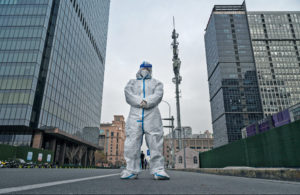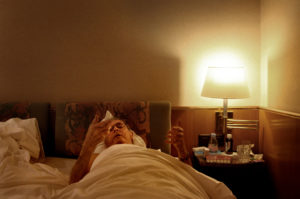Justin Trudeau has had his share of scandals. However, the latest one to hit Canada’s leader has all the makings of a career-killer. Leaks from the Canadian Security Intelligence Service (CSIS) allege that Trudeau ignored its warnings of foreign interference during the 2019 election and, in effect, turned a blind eye to efforts by the Chinese consulate to help elect Liberal Party candidate Han Dong as MP. There were reportedly a total of 11 Beijing-funded candidates: nine Liberals and two Conservatives, though the identities of the others are not yet known.
This week, Trudeau announced that he would appoint an “eminent Canadian” to the position of “special rapporteur” to investigate the reports of foreign interference that have been eating away at his credibility. Though this is still short of the full public inquiry that the opposition has been demanding, it is better than his previous tactic of trying to minimise or dismiss the claims. Yet already the political establishment is asking: will this scandal be enough to take down Justin Trudeau?
In many ways, Trudeau had already fallen from grace — although the only way was down from that ridiculously high pedestal he was placed on. When Trudeau came to power in 2015, he was hailed by the international media as liberalism’s golden boy. He looked like a Disney prince and sounded all the right notes on feminism and climate change. When Americans elected Trump, Trudeau’s reputation with the transatlantic establishment shot up even farther, if only in comparison with the orange ogre. But back home, his government proved no less vulnerable to the vice that afflicts nearly all Canadian prime ministers who stay in power long enough: the ethics scandal.
Trudeau’s came early and often. First were the charges, in 2017, that Trudeau had accepted luxury gifts from the Shia Imam Aga Khan in exchange for $50 million in government funding for the Aga Khan Foundation. Next came reports of political interference with an investigation into Quebec engineering giant SNC-Lavalin, for which the parliamentary ethics commissioner found that Trudeau had unduly pressured his Attorney General, Jody Wilson-Raybould, into offering the firm a deferred prosecution agreement. Then came scrutiny over the government’s decision to award a lucrative youth summer jobs contract to the WE Charity, a well-connected outfit run by the Kielburger brothers, who had previously paid $425,000 to the Trudeaus to cover expenses for their participation in the group’s promotional events.
In each of these scandals, Trudeau offered excuses. He and the Aga Khan were old friends; in shielding SNC-Lavalin from prosecution, he was saving Canadian jobs; the WE Charity was the “only possible option”. These explanations failed to clear the air and Trudeau’s polling numbers took a hit; in particular, rifts in the Liberal caucus, such as the ousting of Wilson-Raybould (Canada’s first indigenous Attorney General) and two more high-profile female MPs, tarnished Trudeau’s feminist brand. Yet these scandals took place in his first mandate, and he went on to win re-election in 2019 and in 2021, eking out minority governments. (Notwithstanding the alleged presence of compromised candidates, the overall outcome of these elections is not being contested, either by Canada’s intelligence chief or by the Conservatives’ campaign manager.) With his seeming imperviousness to political damage, the prime minister has been dubbed “Teflon Trudeau”. Trudeau’s position appeared stable enough in the middle of 2022 for him to declare: “I’ll be around for the next election.”
Is there any reason to believe that this time will be different? While the earlier ethics breaches stem from a culture of prime ministerial cronyism that is as typically Canadian as moose and maple syrup, the involvement of a foreign power and the prospect of a direct threat to the integrity of Canada’s democracy marks this scandal in a more insidious category of corruption. Incidentally, this would not be the first time the Liberal Party relied on foreign interference: in the 1963 election, Liberal leader Lester Pearson colluded with advisers sent by John F. Kennedy to displace conservative prime minister John Diefenbaker. That, and 2019’s mid-campaign endorsement from Barack Obama that helped to salvage Trudeau’s credibility after the release of his infamous blackface photos. However, it is one thing to call in help from the Americans and another matter entirely to accept the aid of a hostile authoritarian state like China. Indeed, a few years before he became prime minister, Trudeau expressed admiration for China’s “basic dictatorship”, a comment brushed off by some at the time as a bizarre gaffe, but which takes on an ominous significance now.
Another sign of the scandal’s graveness is that Canada’s institutions and opinion leaders seem to be converging on the idea that Trudeau’s time may be up. See the editorials from Canada’s broadsheets: “Even Liberals sense the China scandal could spell the end of Trudeau” (the conservative National Post); “We don’t need a public inquiry into foreign interference… What we need a public inquiry to look into is domestic complicity in foreign interference” (the centrist Globe and Mail); “The longer Justin Trudeau stalls, the more he looks like he has something to hide” (the liberal Toronto Star). Among the opposition parties, it is no surprise to see the Conservatives, under hard-edged new leader Pierre Poilievre, howling for blood. But the more decisive factor may be the response of the Left-wing New Democrats and their leader Jagmeet Singh, who are the ones propping up Trudeau’s minority government. Should Singh decide that a public inquiry is a condition for continued support, and should Trudeau refuse, the government could fall, triggering a new election — though this still seems a distant possibility at the moment.
But even more than the press and rival parties, the Canadian institution that can do the most harm to Trudeau now and in the long run is the one that initiated this political maelstrom in the first place: CSIS, which has launched an investigation to determine the identity of the whistleblowers. It is always a troubling sign when a breach emerges between the security services and the political authorities, though even this is not uncharted territory in recent Canadian history. In 2006, another branch of the security services, the RCMP, may have helped to topple the last Liberal government by unveiling its findings about another ethics scandal in the middle of an election campaign, not unlike FBI Director James Comey’s “October Surprise” in the US election of 2016.
It is perhaps with such precedents in mind that Trudeau responded forcefully to the claim that he ignored a CSIS request to terminate the candidacy of Han Dong. He appealed to the principle that: “in a free democracy… It is not up to unelected security officials to dictate to political parties who can or cannot run.” This is true enough, but what if the candidate in question really was compromised?
Another line taken up by Trudeau is that to question the matter too closely, or to play “political games” with the issue of foreign infiltration, was to cast doubt on the electoral process as a whole, thereby eroding Canadians’ trust in their democracy — the implication being that this was an unwholesome, Trump-like thing to do. The irony, however, is that Trudeau is now roughly in the same position as Trump when he was president: having to deal with allegations of collusion with a foreign power emanating from disgruntled agents of the “deep state”. Trudeau’s most laughable strategy so far has been to suggest that those looking into Han Dong’s affiliations are trafficking in “anti-Asian racism” (though a number of Chinese-Canadian community groups have already pointed out that it isn’t at all racist to be concerned about national security). These are the throes of a politician in desperation.
If the worst were to happen, Trudeau’s consolation would be that his party has a few strong candidates to succeed him who stand a decent chance of defeating rival Pierre Poilievre, some of whom happen to be talented and capable women. For instance, Deputy Prime Minister Chrystia Freeland is a Rhodes Scholar who recently dressed down the Russians in their own language. Maybe she can do the same to the Chinese? What better way for Trudeau to restore his feminist bona fides than to step down in the very near future and make way for a female prime minister? He can either make the decision now, on his own terms, or wait and let Canadian voters make it for him.
Still, it doesn’t look like Trudeau will go down quietly. The pressure on him is only likely to ramp up as more information comes to the surface, whether through further leaks or a future inquiry, about what he did or did not do. It’s also a curious portent that the first person to predict a political career for Justin Trudeau was none other than Richard Nixon, who toasted the four-month-old infant as Canada’s future prime minister in 1972. Of course, Tricky Dick read the writing on the wall and knew when to go. But will Teflon Trudeau have the same sense?
Disclaimer
Some of the posts we share are controversial and we do not necessarily agree with them in the whole extend. Sometimes we agree with the content or part of it but we do not agree with the narration or language. Nevertheless we find them somehow interesting, valuable and/or informative or we share them, because we strongly believe in freedom of speech, free press and journalism. We strongly encourage you to have a critical approach to all the content, do your own research and analysis to build your own opinion.
We would be glad to have your feedback.
Source: UnHerd Read the original article here: https://unherd.com/



